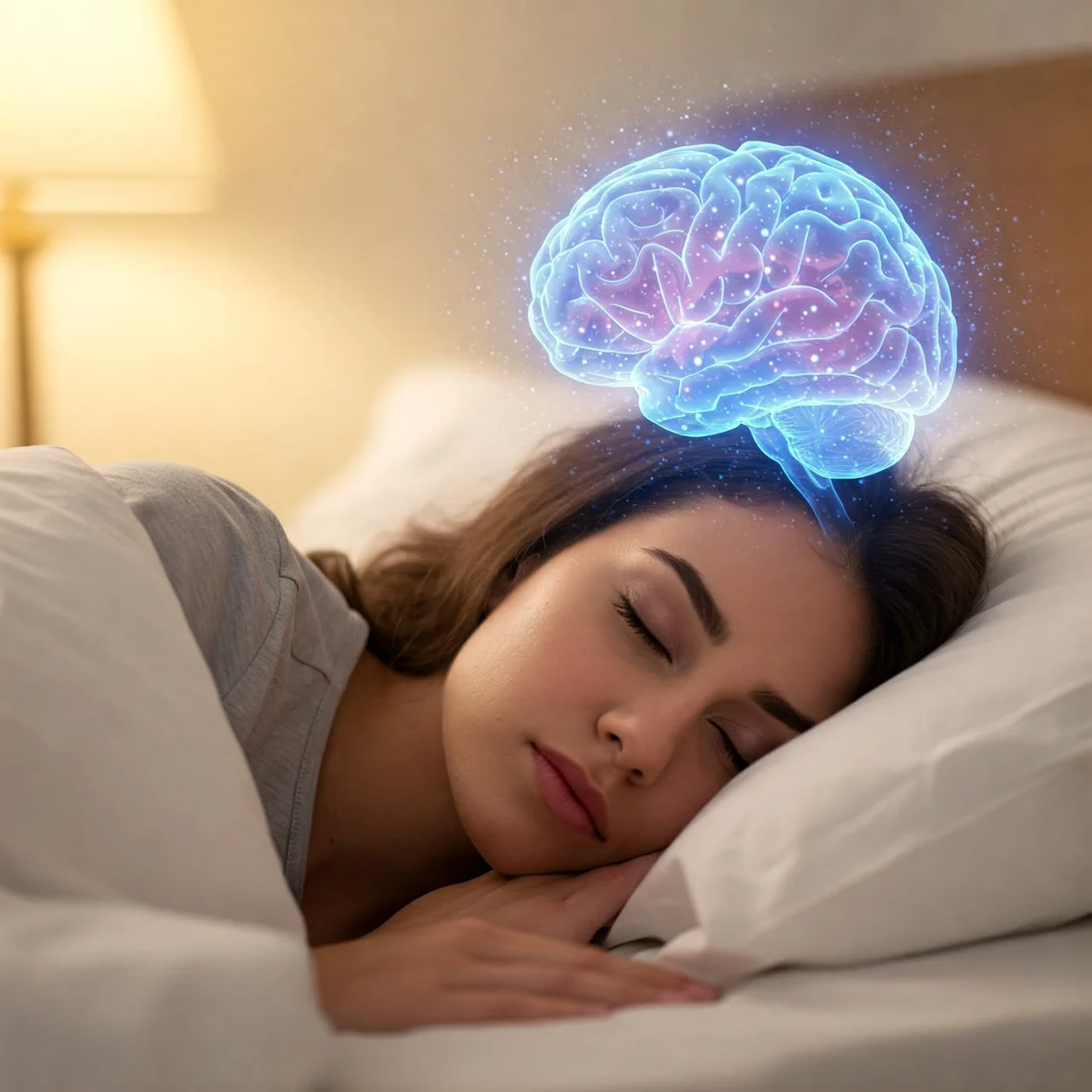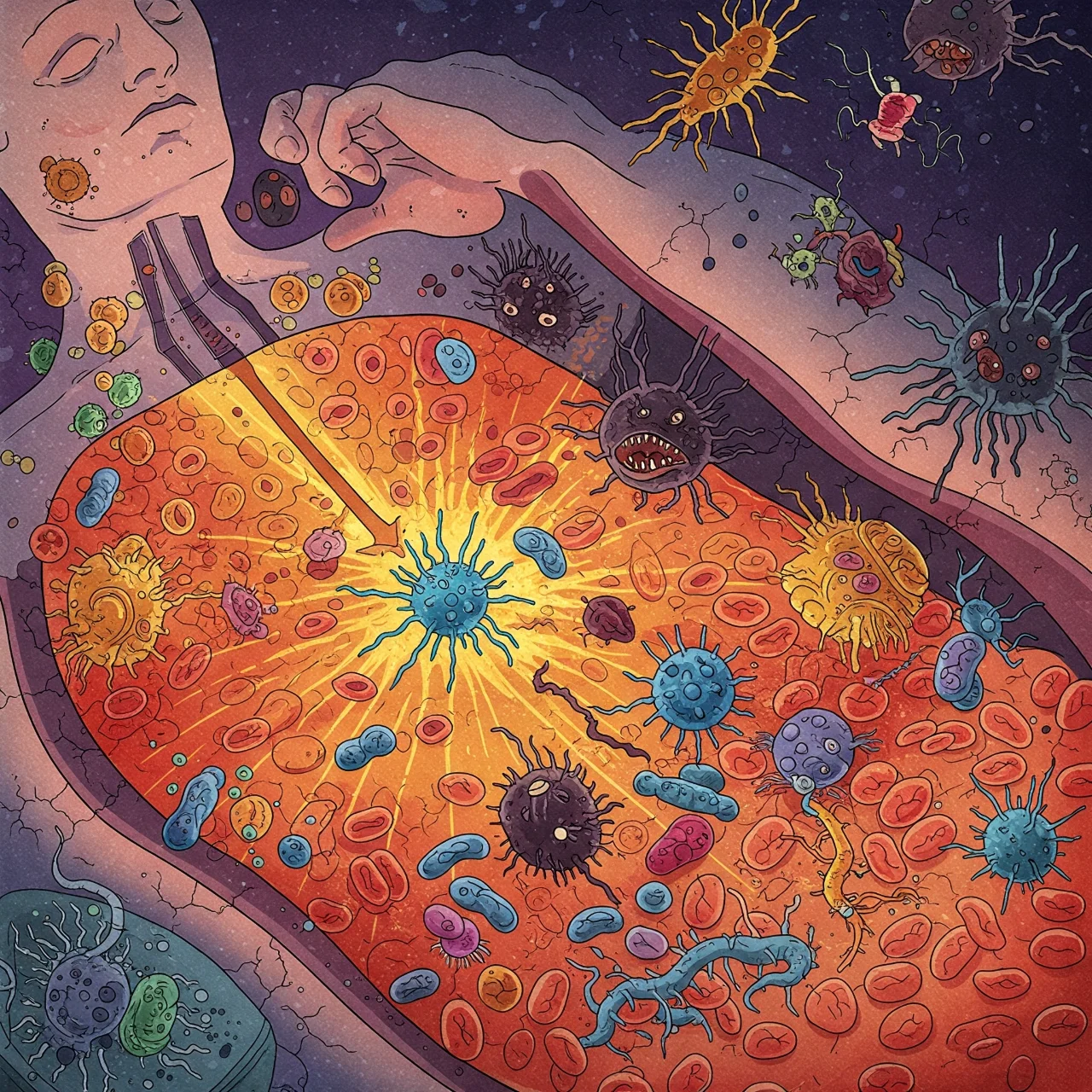10 Sleep Facts That Will Change How You Rest | ListsLook
Introduction: Why Understanding Sleep Matters

Ever wonder what *really* happens while you sleep? It's far more than just downtime! The science of sleep is a complex and fascinating field, revealing how crucial those Zzz’s are for physical and mental wellbeing. From consolidating memories to regulating hormones, sleep impacts nearly every aspect of our lives. This listicle dives into 10 mind-blowing facts about sleep, drawing on the latest sleep research, to help you understand and improve your nightly rest.
1. The Five Sleep Stages and Their Roles
Sleep isn’t a single state; it's a journey through five distinct stages. These stages repeat in cycles throughout the night. Stages 1 & 2 are light sleep, preparing your body for deeper rest. Stages 3 & 4 are deep, restorative sleep, vital for physical recovery and immune function. Finally, REM (Rapid Eye Movement) sleep is where most dreaming occurs, crucial for cognitive function and emotional processing. Understanding these stages is key to optimizing your sleep architecture.
2. Your Circadian Rhythm is Your Internal Clock

Ever wondered why you feel tired at roughly the same time each night? That’s your circadian rhythm at work! This internal 24-hour clock regulates sleep-wake cycles, hormone release, and body temperature. Exposure to light, especially sunlight, is the primary cue that keeps your circadian rhythm synchronized. Disruptions – jet lag, shift work – can lead to sleep disorders and health problems. Paying attention to your body’s natural rhythms is a cornerstone of the science of sleep.
3. Dreams Aren't Random: The Purpose of REM Sleep
Dreams, occurring mostly during REM sleep, aren't just bizarre stories your brain conjures up. They're thought to serve several crucial functions, including emotional processing, memory consolidation, and problem-solving. While the exact purpose remains a topic of ongoing sleep research, theories suggest dreams help us rehearse scenarios and cope with emotional challenges. Even nightmares can be a form of emotional regulation.
4. Sleep Deprivation Impacts Cognitive Function
Lack of sleep isn’t just about feeling tired. It dramatically impairs cognitive abilities, affecting attention, memory, and decision-making. Even mild sleep deprivation can have the same effect as being legally intoxicated! Chronic sleep loss increases the risk of accidents and errors. Prioritizing sufficient sleep is essential for peak performance in all areas of life. The science of sleep clearly shows its link to cognitive health.
5. The Link Between Sleep and Your Immune System

Sleep and immunity are intricately connected. While you sleep, your immune system releases proteins called cytokines, some of which help promote sleep. But adequate sleep is also critical for the production of infection-fighting antibodies and immune cells. Sleep deprivation weakens the immune system, making you more susceptible to illness. Getting enough sleep is a powerful and often overlooked component of a strong immune response - solidifying the importance of sleep science.
6. Napping: Benefits and Drawbacks

A short power nap can be incredibly restorative, boosting alertness and improving cognitive function. However, the *timing* and *duration* of your nap matter. Long naps (over 30 minutes) can lead to grogginess, known as sleep inertia. The ideal power nap is around 20-25 minutes. Strategic napping can be a helpful tool for managing sleep debt, but it shouldn’t replace consistent, quality nighttime sleep. This continues the exploration of the science of sleep.
7. Sleep Needs Vary Throughout Life
The amount of sleep you need changes as you age. Newborns require the most sleep (around 14-17 hours), while adults generally need 7-9 hours. Sleep patterns also change over the lifespan, with a decrease in deep sleep as we age. Understanding these changes is crucial for adapting sleep habits to meet your body’s evolving requirements. The field of sleep research consistently refines our understanding of these needs.
8. Blue Light and Melatonin: A Sleep Disruptor

Exposure to blue light emitted from screens (phones, tablets, computers) can suppress the production of melatonin, a hormone that regulates sleep. This makes it harder to fall asleep and can disrupt sleep quality. Reducing screen time before bed, using blue light filters, or wearing blue-light-blocking glasses can help mitigate these effects. This understanding is pivotal in current sleep science.
9. Sleep Disorders Are More Common Than You Think
Millions of people suffer from sleep disorders like insomnia, sleep apnea, and restless legs syndrome. These conditions can significantly impact quality of life and contribute to various health problems. If you consistently struggle with sleep, it's important to consult a healthcare professional. Early diagnosis and treatment can greatly improve your health and wellbeing. Sleep research continually uncovers new insights into these conditions.
10. Optimizing Your Sleep Environment

Creating a sleep-conducive environment is vital for quality rest. This includes a dark, quiet, and cool bedroom. Investing in a comfortable mattress and pillows, maintaining a regular sleep schedule, and practicing relaxation techniques can all contribute to better sleep. Small changes to your sleep environment can make a big difference in your overall health. Understanding these simple adjustments encapsulates practical application of the science of sleep.
Comments
Loading comments...